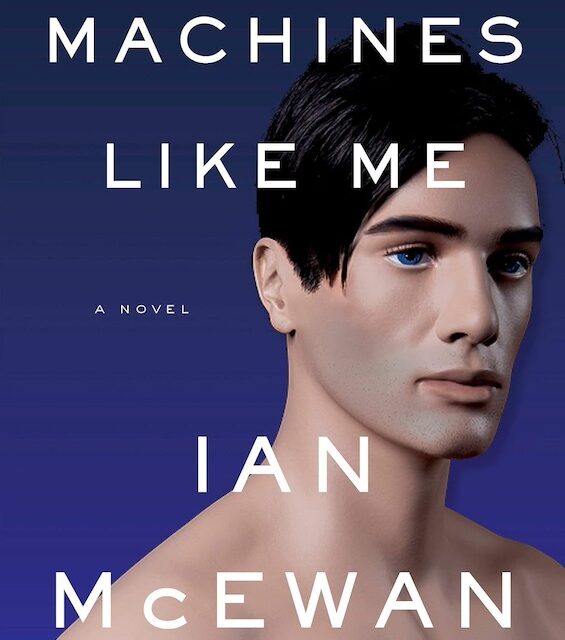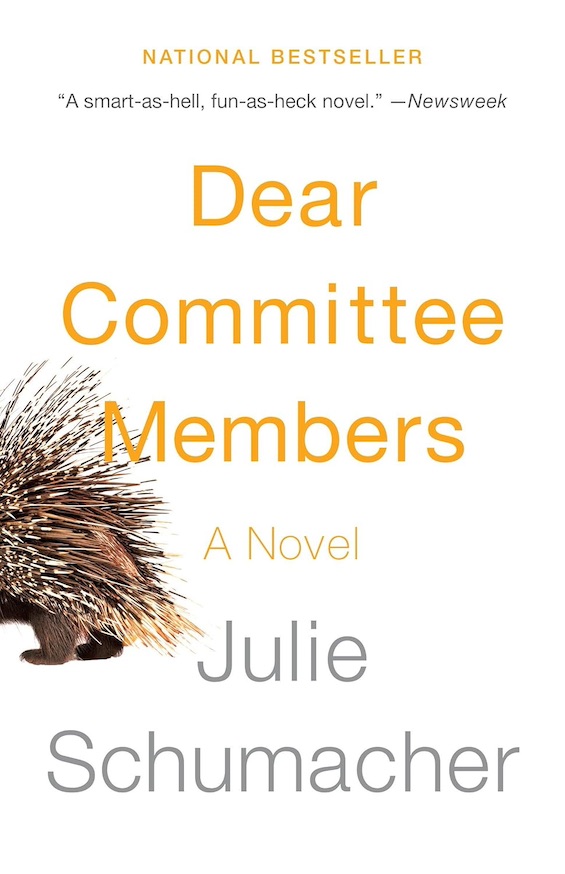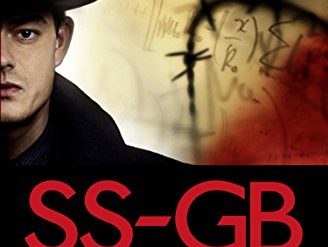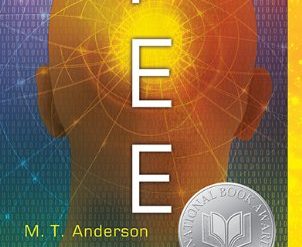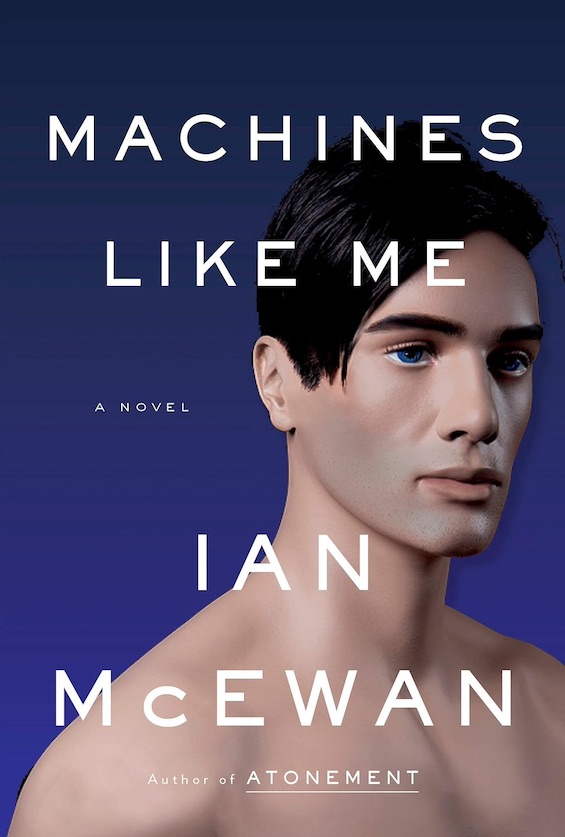
When big-name mainstream authors venture into science fiction, watch out. I’ve been hugely disappointed by sci-fi novels penned by the likes of Louise Erdrich, Joyce Carol Oates, Jennifer Egan, Kazuo Ishiguro, and Colson Whitehead. If you’re not familiar with the names, just scan a few issues of the New York Review of Books. You’ll find them there. Ian McEwan’s, too. So I should have been wary when I picked up Machines Like Me, the celebrated British author’s attempt to build an alternate technology history around the advent of truly humanoid robots. Unfortunately, the novel is a bit of a mess.
Estimated reading time: 5 minutes
A great writer who shouldn’t tackle science fiction
Now, don’t get me wrong, Ian McEwan is, indeed, a terrific writer. As are all the others I’ve named above. The problem is that he doesn’t seem to understand the genre. Because Machines Like Me isn’t just a tale about a man who buys an android and finds his life turned upside-down. Those elements in this novel would have made for a great story. But McEwan unaccountably mashes it up with a confused alternate history in which Alan Turing survives into the 1980s and leads the high-tech revolution. (Turing committed suicide in 1954.) Now, even that angle might have worked if McEwan hadn’t also stumbled into a topsy-turvy alternate political history of Britain. It’s all simply too much to cram into one novel. And it doesn’t work.
Machines Like Me by Ian McEwan (2019) 320 pages ★★★☆☆
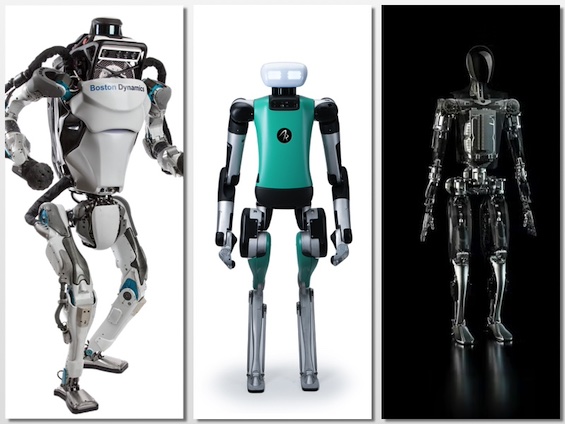
Here’s what’s going on
It’s 1982. Margaret Thatcher has launched the Royal Navy against the impertinent Argentine generals who have sent occupation forces to the Falkland Islands. In reality, Britain squashed the Argentines in short order. But in the novel, the South Americans have obtained French Mirage fighter jets and Exocet missiles programmed by Israeli specialists—and they sink Britain’s warships in the South Atlantic. Of course, this humiliating defeat changes the trajectory of British history. It leads to Thatcher’s defeat at the polls and a Labour government under the radial populist Tony Benn.
Meanwhile, a hapless, 32-year-old Londoner named Charlie has come into a small fortune. He squanders the whole pile, buying one of the first 25 humanoid robots to go on the market. They’re all called Adam or Eve. He receives an Adam. Now, “Adam was not a sex toy. . . He was advertised as a companion, an intellectual sparring partner, friend and factotum who could wash dishes, make beds, and ‘think.'” Naturally, however, Charlie gets a lot more than he bargains for when he purchases Adam.
Two humans plus one android
Of course, we know this is a very bad idea. We’ve seen this movie before. But Charlie isn’t terribly bright. And he compounds the error by including his upstairs neighbor, Miranda, in the process of programming Adam. (McEwan doesn’t explain why programming is necessary or even possible.) But Charlie’s agenda is clear. Miranda, 22 and a graduate student, is gorgeous, and Charlie is head over heels. So, if the set-up in the story was already portentous, it’s now set to blow up in everyone’s faces. And of course that’s exactly what will happen.
But wait. There’s something else important that’s going on here. Both Charlie and Miranda harbor big secrets. In fact, they’re both criminals. We know about Charlie’s misbehavior at the outset, because McEwan tells us. Charlie was a tax attorney who committed tax fraud and was disbarred. But Miranda’s secret? That’s a long time in coming out. And of course it’s central to the plot. But I’m not telling.
About the author
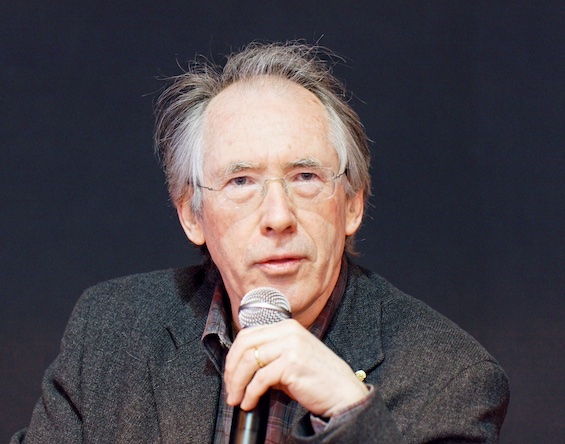
Ian McEwan is a British Booker Prize-winning novelist and screenwriter. The Times of London included him on its list of “The 50 greatest British writers since 1945.” He is the author of seventeen novels, five screenplays, and numerous other works and has garnered many honors and awards for his writing. This alternate technology history is one of his most recent books.
McEwan was born in 1948 in Hampshire, England. He has been married twice, has two sons, and lives in London.
For related reading
All of the other books I’ve read about robots are more conventional, such as 2062: The World That AI Made by Toby Walsh (An AI expert worries about the robots of the future) and the novel Sea of Rust by C. Robert Cargill (After the war between robots and humans). But I’ve also reviewed 30 good books about artificial intelligence.
For more good reading, check out:
- Great alternate history novels
- These novels won both Hugo and Nebula Awards
- The ultimate guide to the all-time best science fiction novels
- The top science fiction novels
- 10 new science fiction authors worth reading now
And you can always find my most popular reviews, and the most recent ones, on the Home Page.

